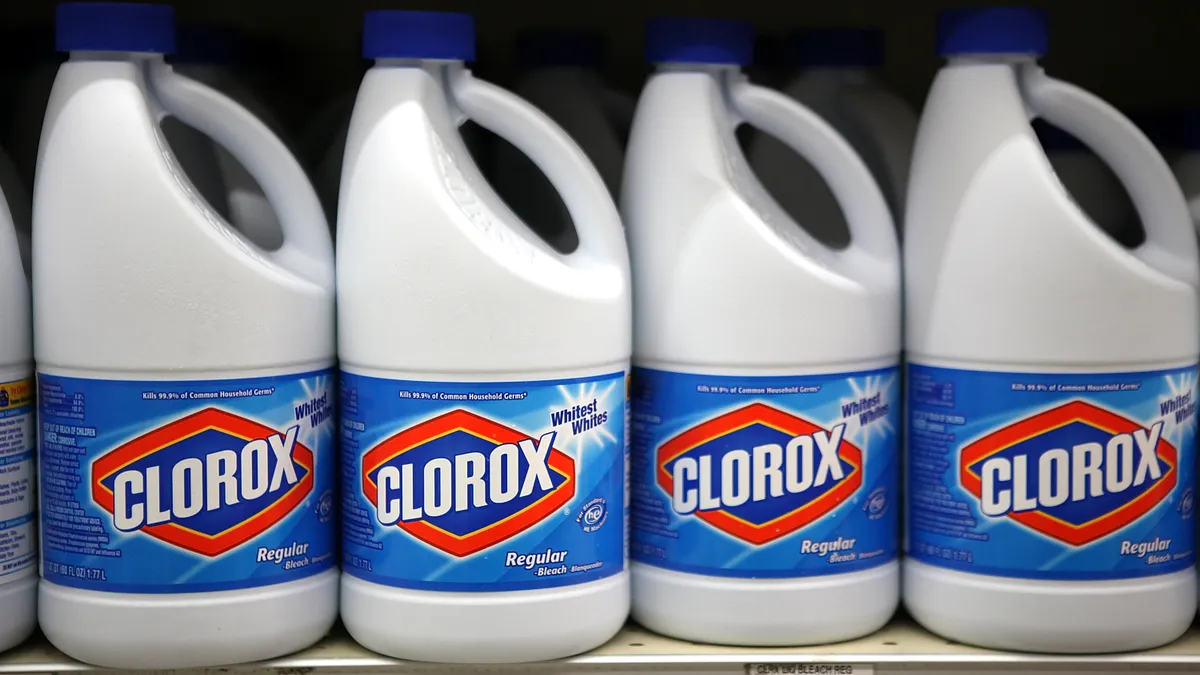Dive Brief:
- The Clorox Co. is partnering with carbon tracker Manufacture 2030 to advance decarbonization throughout its value chain — starting at the supplier level, according to a Nov. 1 press release.
- The partnership aims to help Clorox’s suppliers meet carbon reduction targets by collecting emissions data, jointly identifying and defining decarbonization actions, and providing continual upskilling opportunities.
- The program will be gradually rolled out to several of Clorox’s raw materials and packaging suppliers, which collectively represent more than half of the company’s scope 3 emissions.
Dive Insight:
The Manufacture 2030 platform helps identify ways to measure, manage and reduce carbon emissions, according to the release. Some of the tools available through the platform include support from a network of carbon experts and green finance options to meet emissions reduction targets from a facility level, a Clorox spokesperson told ESG Dive sister publication Supply Chain Dive.
“M2030’s platform provides visibility into our suppliers’ reduction action plans to determine if they are tracking to our targets, identify where the gaps are, and actively work with them to close them,” they said.
While the platform doesn’t directly connect to Clorox’s internal database, the cleaning product maker can reference the suppliers’ information at any time, according to the spokesperson.
“Once registered, suppliers select Clorox as a customer through M2030’s platform to share a summary of their data and action plans,” they said. “Notably, because suppliers are able to share their data across multiple customers, the platform helps eliminate duplicative reporting efforts.”
In phase one of the program rollout, Clorox sent out invitations to its suppliers with the highest manufacturing impact on its business to accelerate their scope 1 and 2 reduction plans, the spokesperson said. Clorox will continue to invite suppliers to join the platform until March 2025, and expects new suppliers to register on the platform, report emissions data and draft reduction plans by next summer.
“These are suppliers with which we have strategic and long-term relationships, so that we are able to realize meaningful year-over-year reductions,” the spokesperson said.
Although the Securities and Exchange Comission cut back on scope 3 reporting requirements in March, companies like Clorox are still determined to slash their carbon footprints.
In April, global automakers, including Ford Motor Co., General Motors and Toyota Motor North America, released an Automotive Climate Action Questionnaire hosted on the Manufacture 2030 program. Home improvement company Kingfisher also tapped Manufacture 2030 in June to help collaborate with its vendors on building roadmaps and understanding emissions data.













